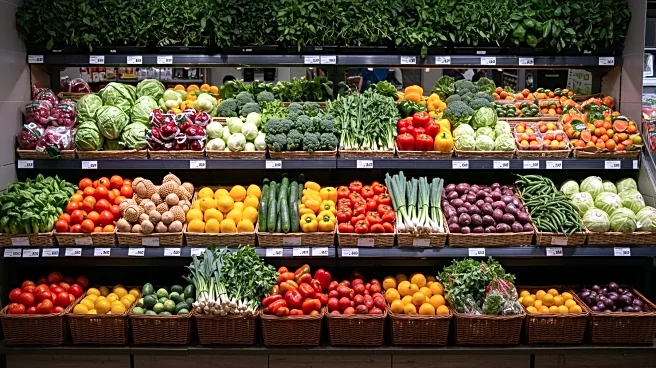What's Happening?
Food prices in the UK have risen significantly, with inflation reaching 4.9% in July. This increase is attributed to several factors, including climate-related issues such as drought affecting crop yields and extreme weather impacting global supply chains. Additionally, geopolitical events like the war in Ukraine have disrupted supply chains, further driving up costs. The rise in food prices is affecting consumers across the board, with low-income families feeling the impact more acutely due to their higher proportion of spending on food.
Why It's Important?
The ongoing rise in food prices is a critical issue for UK households, particularly those with limited financial flexibility. As inflation continues to outpace wage growth, families are forced to make difficult choices about their spending. The situation highlights the vulnerability of supply chains to climate and geopolitical disruptions, emphasizing the need for resilience and adaptation strategies. Policymakers and businesses must address these challenges to ensure food security and affordability for all consumers.
What's Next?
The Bank of England anticipates food price inflation to peak at around 5.5% by the end of the year before potentially decreasing in 2026. Businesses may need to explore cost-saving measures and alternative supply sources to manage rising expenses. The government could consider interventions to support affected industries and consumers, such as subsidies or regulatory adjustments. Stakeholders will be monitoring inflation trends and economic policies closely to assess their impact on consumer prices and household budgets.










